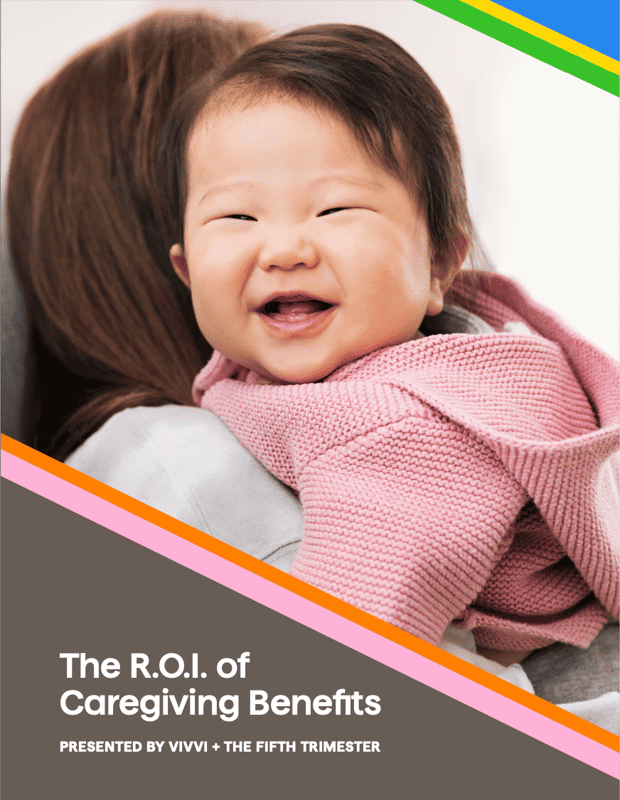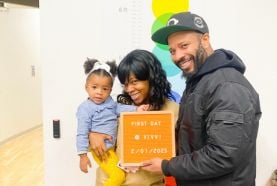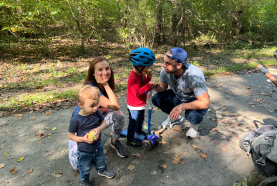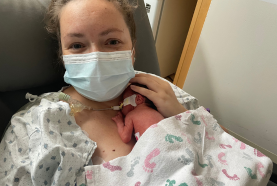Research: The R.O.I. of Caregiving Benefits

.jpg?width=1080&height=1080&name=Untitled%20design%20(15).jpg)

About the Report:
Benefits and culture that support moms, dads, and other caregiving employees are more than just a “nice thing to do.” They’re a business imperative. In new original research, Vivvi and Lauren Smith Brody of The Fifth Trimester offer five key insights that show that parenthood motivates workers to be productive profit-drivers for their employers, and that workplace support for parents pays off.
Workplace support for parenthood drives profits.
When businesses support parents' caregiving needs, they get back their most productive and profitable work ever.
69%
would work in person more than required if their employer had on-site, subsidized or backup child care.
9out of10
would choose an ongoing child care subsidy over a one-time cash payment.
59%
would stay in their job for at least 4 years If they had backup or subsidized child care.
Meet the Parents: How Caregiving Benefits Provide R.O.I.

Madeline: Health Tech Strategist
"I never feel like I have to make a tough decision. I'm doing what's right for my family and the business.”
.jpg)
Sincere: Reproductive Health Care Worker
As a life-saving trans outreach coordinator who travels, this dad of four created a new footprint of advocacy and visibility for his center thanks to child care credits.

Danielle: Marketing and Events Planner
After 10 years of gig-working, employer-sponsored child care got this mom of 3 back into the workforce...in-person.

Marissa: In-House Employment Attorney
Her company’s flexible work mode option and child care credits let this mom of two expand the scope of her important role, limit absences, and co-lead an ERG.

Julia: High School English Teacher

Johanna: Talent Program Manager

Keeley: Media Tech Sales Lead

Michael: Pharmaceutical Scientist
This dad of two credits his company’s on-site daycare for unlocking business development and communication skills, and saving money and time in his lab.

Well-Being Leader + Managing Director
Over 22 years, this mom of two used both adoption and infertility benefits to grow her family while simultaneously developing a wellness strategy for 75,000+ employees.

Interview Insights
“I would never even consider leaving this job while my kids are in the daycare here.”
Michael, Scientist
"This benefit allows me to give everything I can to my work. It means I don’t have to sell my soul and help other people instead of my own kids. I can actually help them all.”
Sincere, Reproductive Health Counselor
“Between my illness and my family dynamic, I never thought I could jump after my dream of a full-time job. Having child care built in makes everything possible.”
Danielle, Social Media and Events Manager
About the Survey
"The R.O.I. of Caregiving Benefits" is a collaboration between Vivvi and Lauren Smith Brody of The Fifth Trimester. The findings and recommendations in this report are the result of an analysis of three sources: 1) interviews conducted between July and November 2023, 2) an original survey fielded in September 2023, and 3) existing research from studies and papers. The people interviewed for the case studies and quoted throughout these pages represent a diversity of industries, roles, geographic locations, and family structures. The survey, fielded over social media and LinkedIn, was taken by 304 people who answered 22 questions. Here's more about the survey respondents:
95%
consider caregiving to be a part of their identity
100%
provide care for someone other than themselves
70%
are either primary or about-equal earners in their family
Get in touch.
Email us at marketing@vivvi.co for more information about the report.
